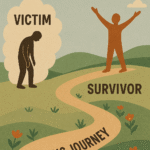Introduction
Narcissist ek aise insaan hote hain jinke behaviour mein apne aap ko sabse upar rakhne ki tendency hoti hai. Wo apne emotions ko sabse zyada importance dete hain aur doosron ki feelings ko ignore karte hain. Mere khud ke experience aur research ke basis pe, main aapko batane wala hoon ki narcissist kaun hote hain, unke alag-alag types kya hain, unke kya signs hote hain, aur aap kaise samajh sakte hain ki aap kis type ke narcissist ke saath deal kar rahe hain.
Narcissist Kya Hote Hain? (What is a Narcissist?)
Narcissist wo log hote hain jinhe apne aap ko superior samajhne ki aadat hoti hai. Wo doosron ko apni zarurat ke hisaab se use karte hain, empathy ki kami hoti hai, aur unka main focus apni image aur control pe hota hai. Narcissistic Personality Disorder (NPD) ek clinical diagnosis hai, lekin aaj kal bahut log narcissistic behaviour show karte hain bina clinical diagnosis ke.
Narcissism Ke Alag-Alag Types (Types of Narcissists)
Har narcissist ek jaisa nahi hota. Main yahaan kuch common types ke baare mein bataunga jo maine apne anubhav aur study se samjhe hain.
1. Grandiose Narcissist
Grandiose narcissist bahut confident, dominant, aur attention chahne wale hote hain. Ye log khud ko bahut bada samajhte hain aur dusron ko neecha dikhate hain. Agar aapne kisi aise insaan ko dekha hai jo hamesha spotlight mein rehna chahta hai, har baat mein jeetna chahta hai, to wo grandiose narcissist ho sakta hai.
Signs:
- Excessive self-confidence
- Bahut zyada bragging
- Apne achievements ko bada chadha ke dikhana
2. Vulnerable Narcissist
Ye thode alag hote hain. Ye log zyada sensitive, insecure aur emotional hote hain, lekin andar se apne aap ko bahut special samajhte hain. Jab unki ego ko chot lagti hai, to wo emotionally hurt ho jaate hain aur passive-aggressive ho sakte hain.
Signs:
- Zyada emotional reactions
- Passive-aggressive behaviour
- Apne aap ko victim ki tarah dikhana
3. Malignant Narcissist
Malignant narcissist sabse dangerous type hote hain. Ye log sadistic tendencies rakhte hain, manipulative hote hain aur dusron ko intentionally hurt karte hain. Inka goal hota hai control aur power hasil karna.
Signs:
- Manipulation and control
- Sadistic behaviour
- Lack of empathy with cruelty
4. Covert Narcissist
Covert narcissist bahar se shy, quiet ya modest lagte hain, lekin andar se wo apne aap ko special samajhte hain. Inka behaviour subtle hota hai, jisse samajhna mushkil hota hai ki ye narcissist hain.
Signs:
- Quiet arrogance
- Passive manipulation
- Indirectly apne aap ko superior dikhana
Common Signs Jo Har Narcissist Mein Hote Hain (Common Signs in All Narcissists)
Chahe koi bhi type ka narcissist ho, in sab mein kuch common traits hote hain:
- Lack of empathy: Dusron ke emotions ko samajhne mein dikkat
- Manipulation: Apni needs ke liye dusron ko control karna
- Need for admiration: Hamesha praise chahiye hota hai
- Sense of entitlement: Har cheez apni hak samajhna
- Gaslighting: Victim ki reality ko doubt karwana
- Emotional abuse: Psychological torture ya neglect
Mere Experience Se Kuch Important Points (Personal Experience Insights)
Maine narcissistic abuse ka experience kiya hai, isliye main aapko apne personal anubhav se kuch baatein batana chahta hoon:
- Narcissist kabhi directly apni burai nahi dikhate, wo indirect tactics se aapko confuse karte hain.
- Aapko lagta hai ki shayad aap hi galat ho, lekin problem unka mindset hota hai.
- Jab wo aapko idealize karte hain, tab aapko lagta hai sab kuch perfect hai, lekin wo kabhi kabhi aapko neecha dikhate hain taaki aap emotionally stuck rahe.
- Sabse mushkil baat hai unka constant emotional push-pull, jo aapke confidence ko todta hai.
Kaise Samjhein Ki Aap Kisi Narcissist Ke Saath Ho? (How to Know If You Are With a Narcissist?)
Agar aapko lagta hai ki aapke relationship mein yeh signs hain, to aapko savdhaan rehna chahiye:
- Aap hamesha unke mood ke hisaab se chal rahe hain?
- Kya wo aapke emotions ko underestimate karte hain?
- Kya wo aapko baar-baar guilt mein daalte hain?
- Kya aap emotional exhaustion feel karte hain?
Agar haan, to yeh bahut possible hai ki aap narcissistic abuse face kar rahe hain.
Conclusion
Narcissist alag-alag tarah ke hote hain, lekin unka common goal hota hai apne ego ko satisfy karna, chahe uske liye wo aapko kitna bhi hurt karein. Apne experience se maine seekha ki awareness sabse pehla step hai. Jab aap samajh jaate hain ki aapke saath kya ho raha hai, tabhi aap apni recovery start kar sakte hain.
Aap apni life ko better bana sakte hain agar aap boundaries set karte hain, apne aap ko samajhte hain, aur emotional healing par dhyan dete hain.
Disclaimer
Ye article mera personal experience aur research pe based hai. Main koi medical ya mental health professional nahi hoon, isliye ye content kisi bhi professional advice ka substitute nahi hai. Agar aapko kisi bhi tarah ka emotional ya psychological problem ho raha hai, to kripya karke kisi qualified expert ya therapist se sampark karein. Is blog ka maksad sirf jaankari dena hai aur aapko aware karna hai, na ki diagnosis ya treatment provide karna.




